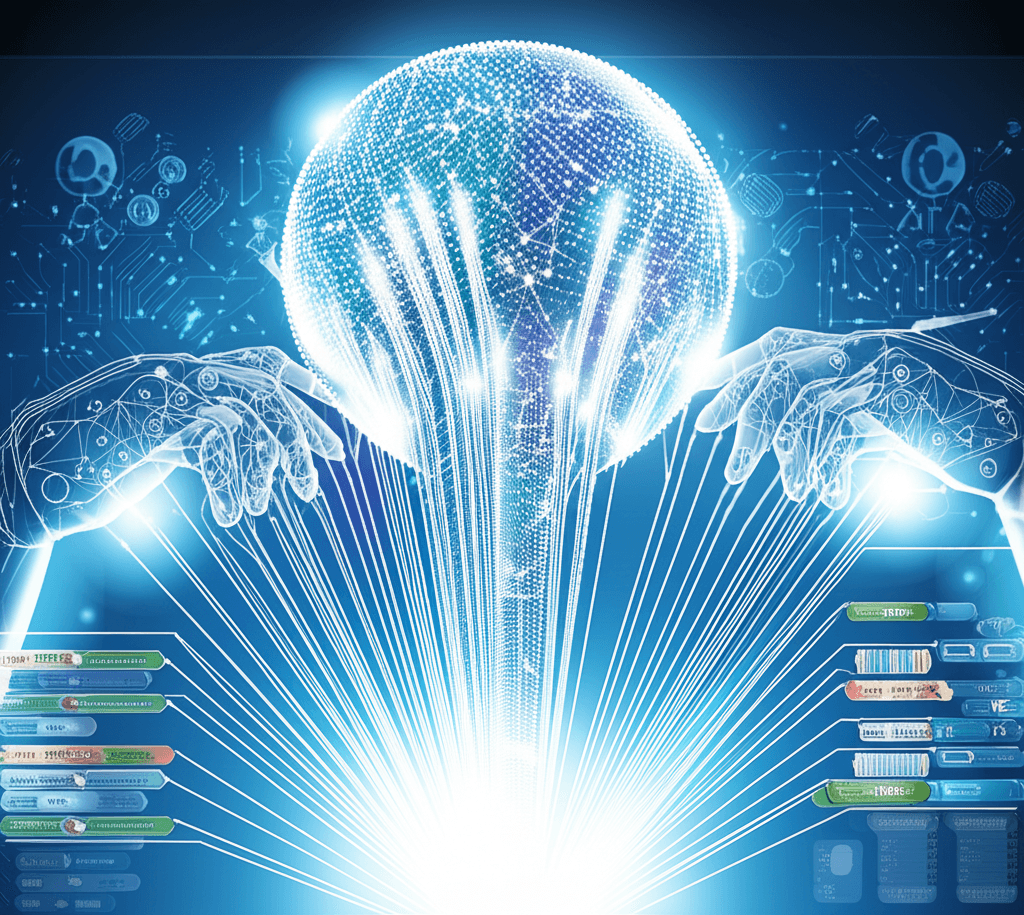Anthropic Supercharges Claude with Memory, No-Code Apps to Rival OpenAI
Anthropic's Claude evolves with memory and app creation, transforming from chatbot into a versatile AI development platform.
June 25, 2025

Anthropic is strategically enhancing its AI assistant, Claude, with significant updates aimed at transforming it into a more powerful and user-friendly platform. The company is reportedly preparing to introduce a memory function and sophisticated app creation tools, signaling a clear intention to compete more directly with industry leaders like OpenAI.[1][2] These new capabilities are designed to empower both developers and non-developers by allowing for more persistent, personalized interactions and the creation of custom AI-driven applications without needing to write code.[1] The move follows the recent launch of Claude 3.5 Sonnet, a model that already set new benchmarks for speed and intelligence, outperforming competitors in areas like coding proficiency and visual reasoning.[3][4] Together, these advancements underscore Anthropic's ambition to shift Claude from a conversational chatbot to a dynamic, collaborative workspace and development environment.[3][5]
A key development is the introduction of a "memory" feature, which will allow Claude to retain information from past conversations.[1] Traces of this function have been spotted on Claude's mobile application, suggesting an imminent rollout across both web and mobile platforms.[1] This capability will enable the AI to reference previous interactions, solving the "amnesia problem" that has limited the continuity of generative AI models.[1][6] By remembering user preferences and the history of interactions, Claude can provide more personalized and contextually aware responses, making it a more effective assistant for long-term projects and complex tasks.[3][6] This brings Claude's functionality in line with similar memory features already offered by competitors like OpenAI's ChatGPT and Google's Gemini, a crucial step for remaining competitive in the rapidly evolving AI assistant market.[1] The memory persistence is expected to allow Claude to build domain expertise over time, enhancing its utility in professional fields like legal research and software development.[6]
Perhaps the most transformative update is the evolution of Claude's "Artifacts" feature into a no-code app creation platform.[1] Initially launched as a way to separate and organize AI-generated content like code snippets and documents into a dedicated window, Artifacts is poised to become an interactive app canvas.[5][7] Leaked information suggests users will be able to embed Claude's functionality directly within these Artifacts, effectively turning them into shareable, lightweight applications.[1][2] This could empower users to build their own games, tools, templates, and apps, democratizing AI development.[2] The "Artifacts" workspace creates a dynamic environment where users can see, edit, and build upon Claude's creations in real-time, seamlessly integrating AI-generated content into their workflows.[5] This functionality, combined with "tool use" capabilities that allow Claude to interact with external APIs and even other AI models, positions Claude as a powerful platform for creating custom bots and automating complex tasks.[8][9][10] For example, developers can now direct Claude to interact with computer interfaces by looking at a screen, moving a cursor, and typing text, enabling the automation of repetitive business processes.[11]
These updates are part of Anthropic's broader strategy to carve out a distinct identity in the AI landscape, one that emphasizes not only performance but also safety and enterprise utility.[12][13][14] The company, founded by former OpenAI employees, has consistently focused on building "harmless" and reliable AI systems.[3][14] The recent launch of Claude 3.5 Sonnet showcased this with marked improvements in grasping nuance, humor, and complex instructions while operating at twice the speed of its predecessor, Claude 3 Opus.[4] It has excelled in benchmarks for graduate-level reasoning, undergraduate-level knowledge, and coding proficiency, even outperforming OpenAI's GPT-4o in some evaluations.[3][4] The new features, including app integrations with services like Jira and Confluence, build on this powerful foundation, aiming to make Claude an indispensable tool for businesses.[15] By enabling users to create custom bots and connect Claude to their existing workflows, Anthropic is not just competing on model intelligence but also on the practicality and accessibility of its platform.[16][17]
In conclusion, Anthropic's reported rollout of memory and app creation capabilities for Claude represents a pivotal moment for the company. By enabling persistent memory, Claude can offer a more personalized and intelligent user experience. Simultaneously, by transforming the Artifacts feature into a no-code development platform, Anthropic is empowering a new wave of citizen developers and making AI tool creation more accessible.[1][2] These advancements, built upon the impressive performance of the Claude 3.5 model family, are set to intensify the competition with OpenAI and other major players.[18][3] As the lines between chatbot, assistant, and development platform continue to blur, Anthropic's focus on creating a versatile, safe, and collaborative ecosystem could prove to be a winning strategy in the next phase of the AI revolution.
Sources
[9]
[10]
[11]
[12]
[13]
[14]
[15]
[16]
[17]